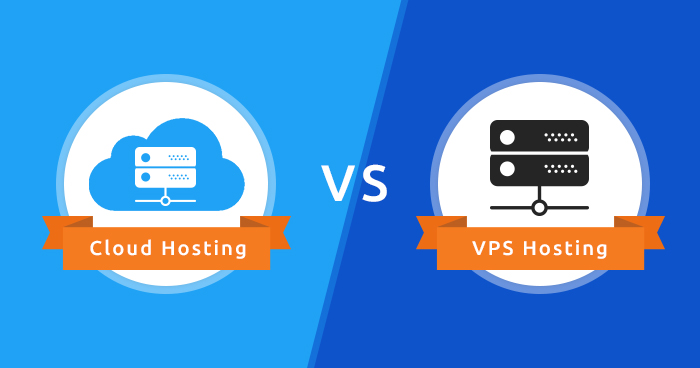If you considered starting your own business page, then you must have browsed many website builder solutions. But that’s not the only essential thing your site requests. You must also think about choosing the right hosting type. In the hosting industry, there are a few hosting types – shared hosting, VPS hosting, reseller hosting, dedicated hosting, Azure support, etc. However, we decided to focus on VPS and cloud hosting, so let’s get into it.
When to Consider Both of These Hosting Types?
Try VPS or Cloud Hosting if your website has surpassed shared hosting and you’ve determined you need a better option. Both of them provide you with the improved dependability, efficiency, and capabilities you need to grow. However, how can you select the option that is ideal for you? Your company requirements will determine the response. Each form of hosting has advantages and disadvantages. Before you decide on your site’s domain name or the look of your page, you must go into more details about the desired host provider.
What is VPS Hosting?
Virtual Private Server is referred to as VPS. You get the benefits of a dedicated server with this sort of hosting but without the immense price. A physical server used for VPS Hosting is virtually divided into numerous separate virtual servers. There isn’t any direct competition, even if you still share that server with a bunch of other customers. Your program and software can be set up as you like. Think of it as a residence that you can customize and furnish however you desire. However, there are a few limitations to VPS Hosting. Performance may vary if another VPS is using a lot of funds because there are numerous virtual segments on a single physical server. To get as much out of VPS hosting, you also need technical expertise because modifying the system requires that you know what you’re doing.
What is Cloud Hosting?
Cloud Hosting uses numerous separate physical servers as opposed to being a piece of a single physical server, which is the main distinction between Cloud Hosting and VPS Hosting. This implies that you will be utilizing hardware servers located throughout the world to provide resources and computing power. Virtually limitless resources will be available to you, and there is no chance of slower speeds. The major benefit of Cloud Hosting would be that it increases your flexibility and ensures performance even during periods of high traffic. You may easily get more server resources anytime you need them, which frees you from being limited by the capabilities of a single server. If one server fails, another one will immediately move in and take its place, so there is also no fear of your website being inaccessible. However, compared to VPS Hosting, Cloud Hosting doesn’t offer as many modification choices, and even if your host does, configuring a cloud-based server usually requires a higher level of technical expertise. Cloud Hosting is becoming more widely available from hosting companies at fair prices.
Conclusion
When your website outgrows the Shared Hosting type, VPS and Cloud Hosting both become desirable possibilities. VPS is still a reliable and trustworthy alternative even if cloud hosting is the prevailing trend, so more and more providers are providing a variety of cloud hosting solutions. Your budget, the frequency of visitors to your website, and your technical know-how all play a role in determining the best kind of host for your website.

